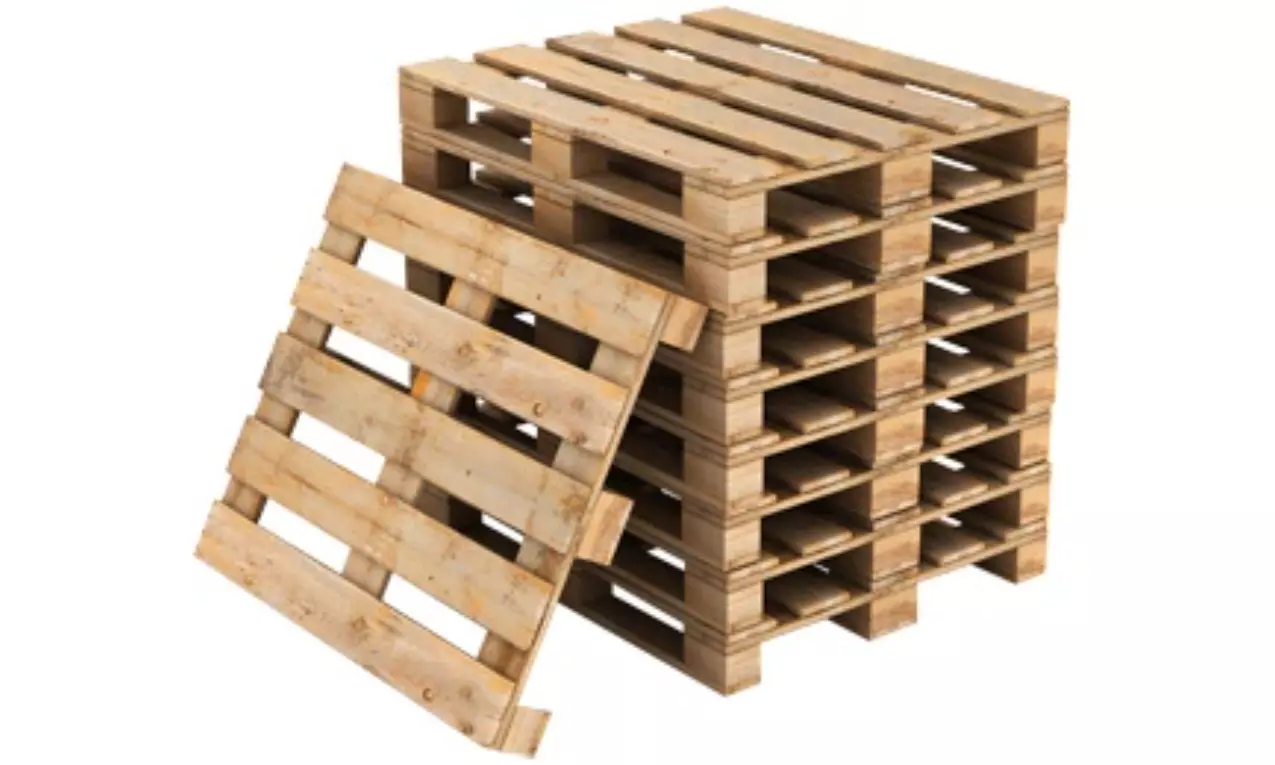Supply chain efficiency, environmental responsibility with pallet solutions

In an era where businesses are increasingly conscious of their environmental footprint, sustainable practices have become more than just a buzzword; they're a necessity. Among the myriad of strategies aimed at reducing ecological impact, sustainable pallet solutions have emerged as a powerful means to enhance both supply chain efficiency and environmental responsibility.
The pivotal role of pallets in supply chains
Pallets are those inconspicuous platforms that make it easier to carry and store products, yet they frequently go unnoticed. However, their significance cannot be underestimated, as they form the foundation of modern supply chains. Pallets streamline loading and unloading processes, protect products during transit, and enable efficient storage in warehouses. Yet, traditional pallet manufacturing methods and materials have raised concerns about sustainability.
Recycled and eco-friendly materials: A paradigm shift
One of the key advancements in the quest for sustainable pallet solutions has been the shift towards recycled and eco-friendly materials. Although durable, traditional wooden pallets are frequently made from virgin wood, which contributes to deforestation and ecological imbalance. Manufacturers are increasingly using composite materials, recycled wood, recycled plastic, and other materials that combine strength, durability, and a smaller carbon footprint to address this issue.
Recycled wood pallets, for instance, utilize wood that has already served its primary purpose, minimizing waste while still providing reliable performance. Similarly, plastic pallets made from recycled materials divert plastic waste from landfills and oceans, offering a longer lifespan compared to single-use alternatives. These inventions demonstrate the idea of upcycling in the logistics industry while also reducing the need for new raw materials.
Reusable and repairable designs: Extending pallet lifecycles
The throwaway culture that has dominated various industries is now being challenged by the concept of reusability. Sustainable pallet solutions emphasize the creation of designs that allow for repeated use and easy repairs. Unlike conventional pallets that might be discarded after a single trip, reusable pallets are built to withstand multiple journeys, reducing the overall demand for pallet production.
Additionally, these pallets' lifespan is greatly increased by the repairability factor. Companies can repair certain components instead of throwing away a damaged pallet, thus preserving resources. This strategy fits in perfectly with the tenets of the circular economy, where items are made to have long lifespans and generate minimal waste.
Circular economy alignment: Reducing waste, promoting resource conservation
The ideas of the circular economy fit seamlessly with sustainable pallet solutions. Circular thinking, which encourages resource and material repurposing, is challenging the linear "take, make, dispose" paradigm. Sustainable pallet solutions help to conserve resources overall by employing recycled materials, designing reusable structures, and permitting repairs.
Additionally, circular economy practices reduce the pressure on raw material extraction, which is often energy-intensive and environmentally detrimental. This shift towards sustainable pallets not only mitigates environmental impact but also generates economic benefits by lowering material costs, decreasing waste management expenses, and fostering innovation in the pallet industry.
The path ahead: collaboration and awareness
Collaboration is necessary among several stakeholders, including manufacturers, logistics providers, and retailers, in order to adopt sustainable pallet solutions. Businesses may send a strong message to their supply chain partners and customers about their commitment to environmental stewardship by opting to purchase and use sustainable pallets.
Furthermore, raising awareness about the benefits of sustainable pallets is vital. Many businesses are not aware of the innovative options available to them. Education campaigns and industry partnerships can play a crucial role in disseminating information and encouraging the adoption of sustainable practices.
Sustainable pallet solutions are at the crossroads of enhanced supply chain efficiency and environmental responsibility. The transformation from conventional pallet materials and designs to recycled, reusable, and repairable alternatives not only improves the logistical landscape but also aligns with the urgent need for sustainable practices. Adopting these cutting-edge pallet solutions is a crucial step towards attaining a more sustainable world as businesses work to minimize their carbon footprint and contribute to a greener future. We exemplify the potential for a harmonious coexistence between business growth and ecological preservation. By embracing recycled materials, reusable designs, and circular economy principles, we demonstrate that every link in the supply chain has the power to be a catalyst for change.



